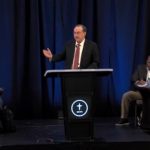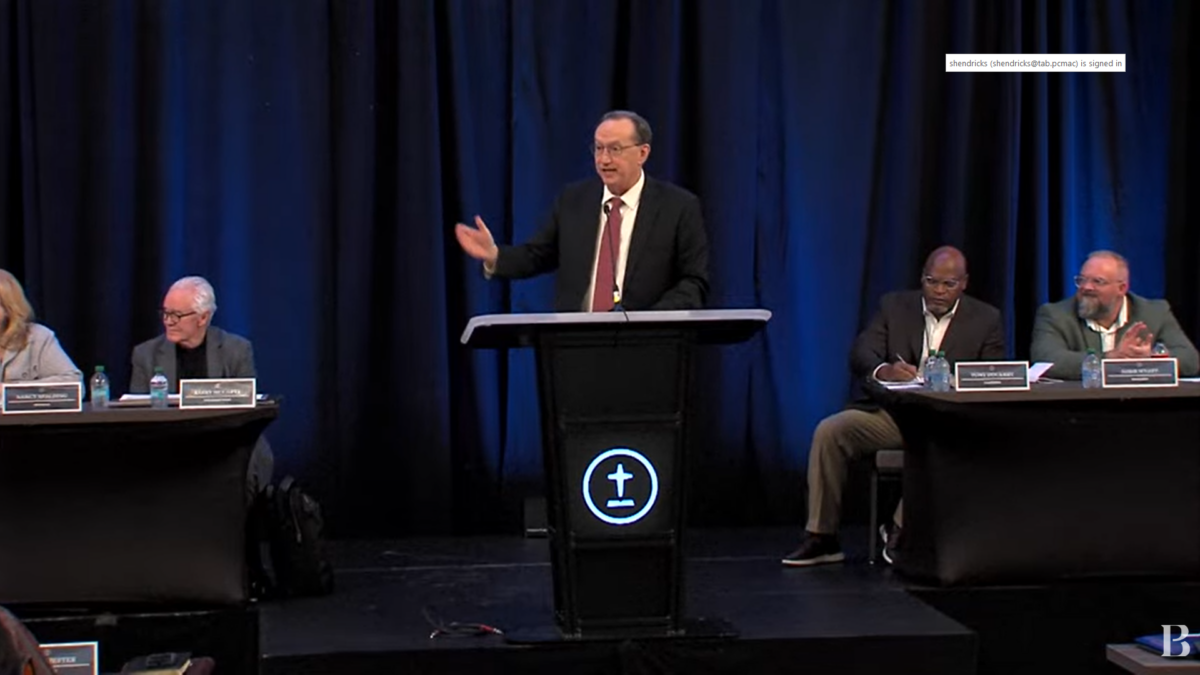Growing up, Austin Mathis didn’t know many pastors who held jobs outside their pastoral roles. So, naturally, when he felt God’s call to plant a church in 2014, Austin didn’t picture himself pastoring while also starting a business and coaching at the local high school.
He’d also never seen a church leverage its building as a for-profit coworking space during the week. So, naturally, he wasn’t quite sure how to start one when the church he planted, Grace Church, acquired its first meeting space in a strip mall on the west side of Cincinnati this past year.
What he did know was that God designed the global economy in such a way that churches can send people everywhere. “And if we can do that internationally,” he says, “why don’t we leverage the local economy for the kingdom of God?”
So, that’s what he did — even when he wasn’t sure exactly what he was doing.
When Austin and his wife, Amy, moved back to their home city of Cincinnati in 2021 to pursue church planting, they wanted to make sure they were setting up Grace Church for long-term success. “If you can find a way early in church planting to alleviate operational costs, it can impact the ministry for years to come,” Austin shares.
That’s why Austin chose to plant Grace Church while working as a strength and conditioning coach at Harrison High School. But seeing marketplace opportunities that could be harnessed for God’s kingdom wasn’t something he intertwined just into his own life — he also applied this to his church’s strategy.
Grace Church first began meeting in Mathis’ living room in 2021. Despite Cincinnati’s cultural Catholicism, God drew people to the church until they outgrew the living room and moved into a nearby elementary school. When Grace Church signed a lease on a retail space in 2022, Austin was excited to see how God would allow them to leverage this new gathering place for His mission.
“Then came the hard part,” Austin laughed.
Financial and missional
As members of Grace Church and ministry teams from partnering churches came to help renovate the space in the following weeks, Austin started consulting with finance and business experts to help set up Co:Mission Collaborative, a for-profit coworking space owned by and for the financial benefit of Grace Church.
“The motivation for starting a business wasn’t only financial, but missional,” Austin shared. “Church planters need to think more like a missionary engaging their community than a preacher starting a Sunday morning event. This business is helping Grace Church accomplish that.”
During the week, Grace Church transforms into an office space for businesses and individuals in their community. Not only does the workspace meet a need in the church’s neighborhood, but this creative opportunity also helps sustain the church’s ministries — ministries that have helped them meet couples like Logan and Dana.
Members from Grace Church first met Logan and Dana at a community yard sale event but didn’t see them again until a year and a half later, when their family encountered a difficult season and decided to visit Grace Church. In the past year, Logan and Dana have accepted Christ, followed in believer’s baptism, and dedicated their four children to God.
Austin’s job as a coach has also helped him reach out to different pockets of his community that wouldn’t have been as easy for him to access as a full-time pastor. Several high school athletes he coaches have visited Grace Church; some even attend with their families.
“Whether it’s being on the sidelines on Friday nights with the football team or getting to know the mayor through my role at the business and church, I’ve seen my multiple roles intersect in the community,” Austin said. It’s all come together, and I’ve seen how God has gone before to prepare the ground and open doors.”
Being a part of Send Network has provided crucial encouragement for Austin as he’s jumped through the hoops of covocational church planting. “Knowing that the entire network is behind you, that everyone is rooting for one another and wants your church to do well — it’s crucial for all church planters, covocational or not.”
Austin encourages churches who own a meeting space to develop a core team of leaders, then ask, “How can your church leverage your space to reach your community? What could God do within the walls of the building not just on Sunday but throughout the week?”
EDITOR’S NOTE — This story was written and originally published by the State Convention of Baptists in Ohio.










